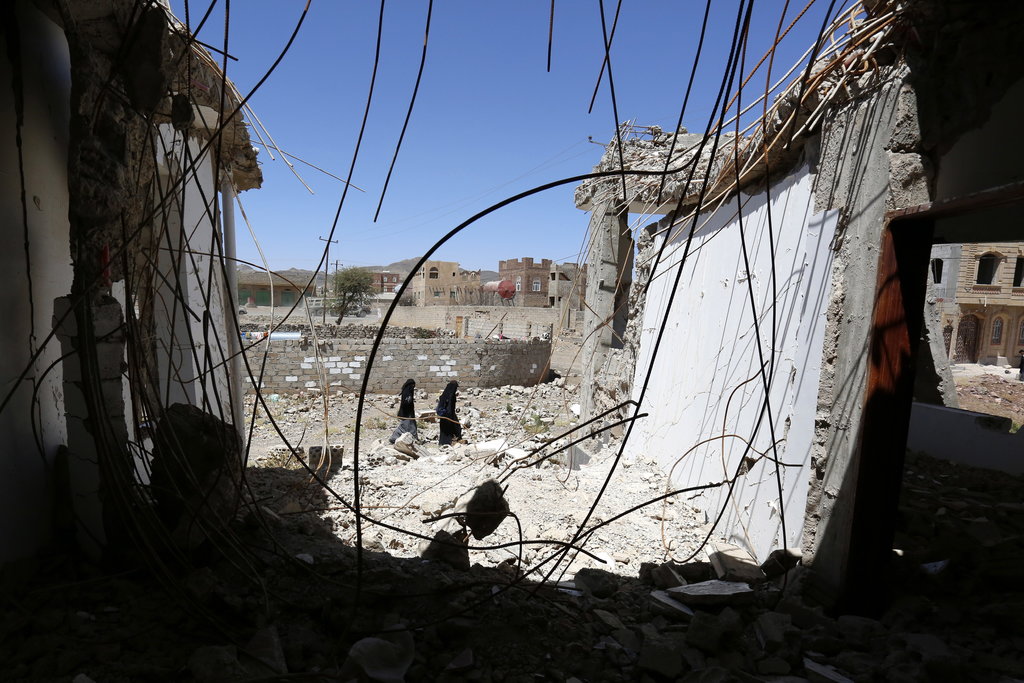On 27 March 2019, an attack took place near the entrance of Kitaf rural hospital in Yemen, killing seven people, four of whom were children. This most recent air raid has drawn significant international attention as the United Nations (UN) human rights staff in Yemen have begun an investigation into the attack. Calls for an investigation have been echoed by countries like the United States (US), among others. However, this most recent bombing is only representative of a larger issue within Yemen.
As the war in Yemen has worsened over the past several years, the medical infrastructure within the country has greatly deteriorated in the conflict, leaving organizations like Médecins Sans Frontières (MSF) with the major responsibility of sending aid and personnel to help with those afflicted. Despite being impartial to either side of the conflict, many of these aid workers have been repeatedly targeted by military forces for their efforts. MSF has reported that their personnel have been subjected to bombings, have been held at gunpoint, have had improvised explosive devices (IEDs) planted in hospitals, and have had patients shot while in their care. Furthermore, due to the constant targeting of hospitals by the Saudi-and Emirati-led coalition, the county’s medical services are incapable of handling the significant medical concerns growing within the nation.
Unfortunately, the targeting of hospitals within Yemen has been a common occurrence since the start of the war. With one of the first attacks taking place on 26 October 2015, MSF’s Haydan hospital in northern Yemen was bombed at night by Saudi- and Emirati-led coalition forces. While no one was killed in this attack because the bombs hit an abandoned ward of the hospital, this attack left the region without a crucial hospital that serviced over 200,000 people and was the only life-saving facility within the region. The hospital’s facility director called the attack a war crime and noted that the forces were aware of the hospital locations since they had been provided with all facilities’ coordinates to avoid unintentional bombings. While Saudi- and Emirati-led forces have denied their involvement, this claim is highly unlikely as the coalition has repeatedly continued to target hospital facilities throughout the conflict.
On 15 August 2016, another major hospital supported by MSF, Abs Hospital, was targeted by Saudi- and Emirati-led forces, killing nineteen, including one aid worker. This attack occurred on a MSF facility that was clearly marked on the roof to warn air bombers, and the coordinates of this hospital were previously disclosed to the Saudi- and Emirati-led coalition forces. This bombing marked over 70 different hospital locations that had been attacked since the start of the war, demonstrating a clear pattern of coalition attacks on medical infrastructure. Ibrahim Jafari, a health ministry official, criticized the coalition’s actions, claiming that the nearest military forces were over 35 miles away from the hospital and that no bombing could be justified.
Almost two years later, on 11 June 2018, coalition forces bombed another Abs hospital location that was a designated cholera treatment center. While no one was killed, the entire facility was destroyed despite it being clearly marked on the roof as a medical center. This facility was especially important as it was created to handle the ever-growing cholera epidemic, and with the Saudi- and Emirati-led forces’ continued destruction of medical facilities across Yemen, MSF greatly fears that the resurfacing of cholera will be disastrous.
MSF has reported that they suspect that there are over 110,000 cases of cholera and an additional 14,000 cases of malnutrition throughout Yemen. Furthermore, many health officials within the UN fear that the continued targeting of hospitals and medical facilities will only continue to exacerbate the volume of cholera cases, which are already spread like “wildfire.” The World Health Organization (WHO) supported this assessment, adding that with the incoming rainy season the expected number of cholera cases will grow exponentially. The most unfortunate aspect of these outbreaks is that cholera is a highly treatable disease, even in severe cases, but Yemen does not have adequate health facilities to provide proper treatment.
The Center for Disease Control (CDC) notes that cholera afflicted patients need to receive proper antibiotics along with rehydration therapy. Even patients who are experiencing severe symptoms can recover with proper treatment. However, due to the conflict in Yemen, getting proper medical supplies and establishing medical facilities to administer treatment grows increasingly difficult, especially with the attacks on the facilities. Countries like the US must halt arm sales to those involved in the Saudi- and Emirati-led coalition in Yemen, and hold them accountable for bombings and attacks on Yemeni hospitals. As World Health Day approaches on 7 April 2019, countries must end their support for this deadly conflict and instead put their efforts into protecting the health of Yemenis and their access to medical care.
Ethan Cook is an Advocacy Intern with ADHRB





